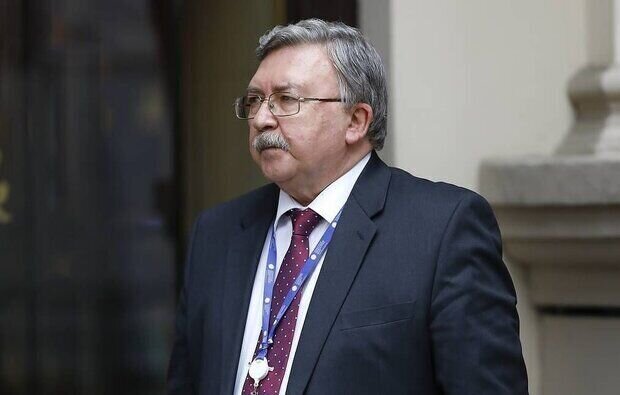Russian diplomat says U.S., E3 thwarted JCPOA resuscitation last year

TEHRAN- A top Russian official has criticized the U.S. and the European parties to the Iran nuclear deal for impeding the agreement’s resuscitation.
“According to the #IAEA report, #Iran has reversed a months-long slowdown in the rate at which it is enriching uranium to up to 60% purity,” Mikhail Ulyanov, Russia’s Permanent Representative to International Organizations in Vienna, wrote in an X post on Tuesday night.
“FYI: if the #US and #E3 had not blocked the restoration of the #JCPOA last year, the enrichment level in Iran would not exceed 3,67% now,” he said, referring to the deal by its official acronym.
It comes as the UN nuclear watchdog reported that Iran had reversed a months-long delay in refining uranium to up to 60% purity.
According to Reuters, Iran has “increased its production of highly enriched uranium, reversing a previous output reduction from mid-2023,” the IAEA said in a statement on Tuesday.
The U.S. and the European troika are to blame, according to Iran’s UN envoy, for the deadlock in the Vienna negotiations on the revival of the 2015 nuclear agreement.
“The responsibility for the JCPOA’s current situation rests squarely and exclusively with the United States and then with the E3/EU for their multiple cases of ‘significant non-performances’ of their obligations under the JCPOA as well as continuous systematic material breaches of their explicit legal obligations under resolution 2231,” Saied Iravani said in an address to a meeting of the UN Security Council on “non-proliferation: implementation of Security Council resolution 2231 (2015)”, held in New York in December.
Also in the same month, Iranian Foreign Minister Hossein Amir Abdollahian said Iran would not indefinitely adhere to the stringent conditions of the JCPOA, expressing concerns over its diminishing effectiveness as time goes by.
He stated, “we will not remain ensnared within the tight tunnels of JCPOA forever.”
Iran's foreign minister discussed the JCPOA's flaws and benefits, noting that if it secures Iran's interests, despite its imperfections, the country will utilize it.
Amir Abdollahian underscored a pivotal shift introduced by the JCPOA, which consolidated several resolutions into a single, complex text, diminishing its comprehensiveness.
Highlighting the importance of rationality in shaping domestic and foreign policies while upholding fundamental principles, the minister stated, "In the realm of foreign policy, the enhancement of political relations at the diplomatic level and on other fronts can be achieved by adhering to principles and respecting red lines.”
Regarding the JCPOA, the top Iranian diplomat firmly stated, “We will not compromise on our red lines. There have been instances where the other party overlooked our red lines, and thus far, we have refrained from embarking on the path to sign the JCPOA. The effectiveness of the JCPOA diminishes day by day."
The deal, officially known as the Joint Comprehensive Plan of Action (JCPOA), was inked in July 2015 between Iran and the five permanent members of the United Nations Security Council - the United States, Russia, China, Britain and France - along with Germany.
This pact facilitated relief from sanctions for Iran, contingent upon the country voluntarily altering certain aspects of its nuclear activities.
The United States under former President Donald Trump unilaterally walked out of the deal in May 2018, despite Iran’s full compliance with the terms of the agreement.
Consequently, Washington's European allies, including France, Germany, and the United Kingdom, aligned with the sanctions by curtailing their trade activities with Iran.
The "maximum pressure" campaign initiated by Trump, although falling short of achieving its intended goals, had severe repercussions on ordinary Iranians, especially those grappling with life-threatening illnesses. Even with the change in administration to Joe Biden, the sanctions persisted, constricting financial channels crucial for acquiring basic goods and medicine. This, in turn, disrupted supply chains by limiting the number of suppliers willing to facilitate the sale of humanitarian goods to Iran.
Despite claims by Washington and its Western allies that humanitarian goods were exempted from sanctions, tens of thousands of patients in Iran have over the years died or developed critical ailments due to the non-availability of essential drugs over the years.
Iran vehemently denounced these sanctions as acts of "economic war," "economic terrorism," and "medical terrorism."
The subsequent Vienna talks, initiated in April 2021 with Britain, France, Germany, Russia, and China, aimed at reinstating the JCPOA. Iran, firm in its stance, insisted on the verifiable removal of all U.S. sanctions and sought guarantees against a future abandonment of the agreement by Washington.
Leave a Comment